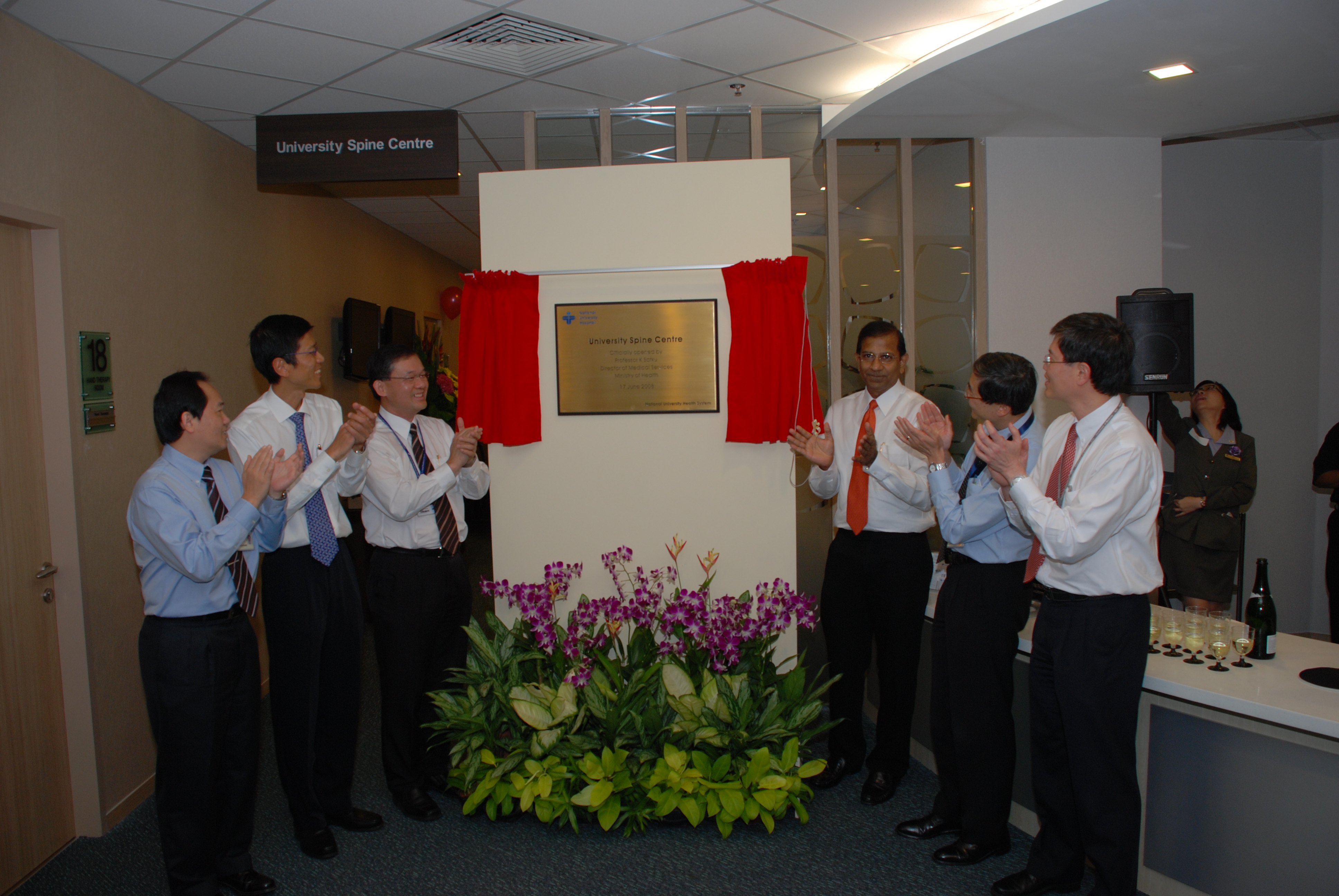The Department of Orthopaedic Surgery established its spine sub-specialty in 1985, assembling a team of spine specialists dedicated to spine practice in Singapore. The University Spine Centre, staffed by eight full-time spine specialists, provides comprehensive tertiary spine care and services.

Opening of University Spine Centre on 17 June 2008 by Prof K Satku
(then-Director of Medical Services, Ministry of Health, Singapore)
The University Spine Centre offers patients a dedicated hub for comprehensive spine care, combining advanced clinical facilities with a patient-centred, seamless care journey to diagnose, treat and manage a wide range of spinal conditions.
As a recognised regional training centre, we regularly conduct specialised courses in thoracoscopic spinal surgery, spinal deformity surgery, cervical spine surgery, vertebroplasty and artificial disc replacement—equipping surgeons across the region with advanced, minimally invasive spine surgery techniques.
At our centre, spine procedures are categorised into key subspecialties: degenerative conditions of the cervical (neck) and lumbar (back) spine, paediatric (child) and adult spinal deformities (including scoliosis), spinal trauma, spinal infections and spinal tumours.
In collaboration with the National Scoliosis Screening Programme, our centre regularly performs thoracoscopic (minimally invasive) scoliosis operations, in addition to conventional scoliosis surgeries.
On top of artificial disc replacement of the lumbar spine and cervical spine, we also perform routine procedures such as minimally invasive spine surgeries (e.g., endoscopic discectomy and minimally invasive lumbar fusion) and dynamic stabilisation (non-fusion) surgeries.
To optimise treatment outcomes, a multi-disciplinary team, including anaesthetists, rehabilitation physicians, paediatricians, medical and radiation oncologists, orthopaedic surgical nurse practitioners, neurophysiologists (for spinal cord monitoring), physiotherapists, occupational therapists, speech therapists, and social workers, is actively involved in patient care.
Beyond spinal surgery, the division collaborates with physiotherapists, acupuncturists and pain management physicians to manage many spinal conditions through non-surgical treatments.
Minimally invasive injection procedures, such as vertebroplasty and nerve root injections, are also performed regularly for patients who are not suitable candidates for open spinal surgery and fail to respond to non-surgical treatments.


















